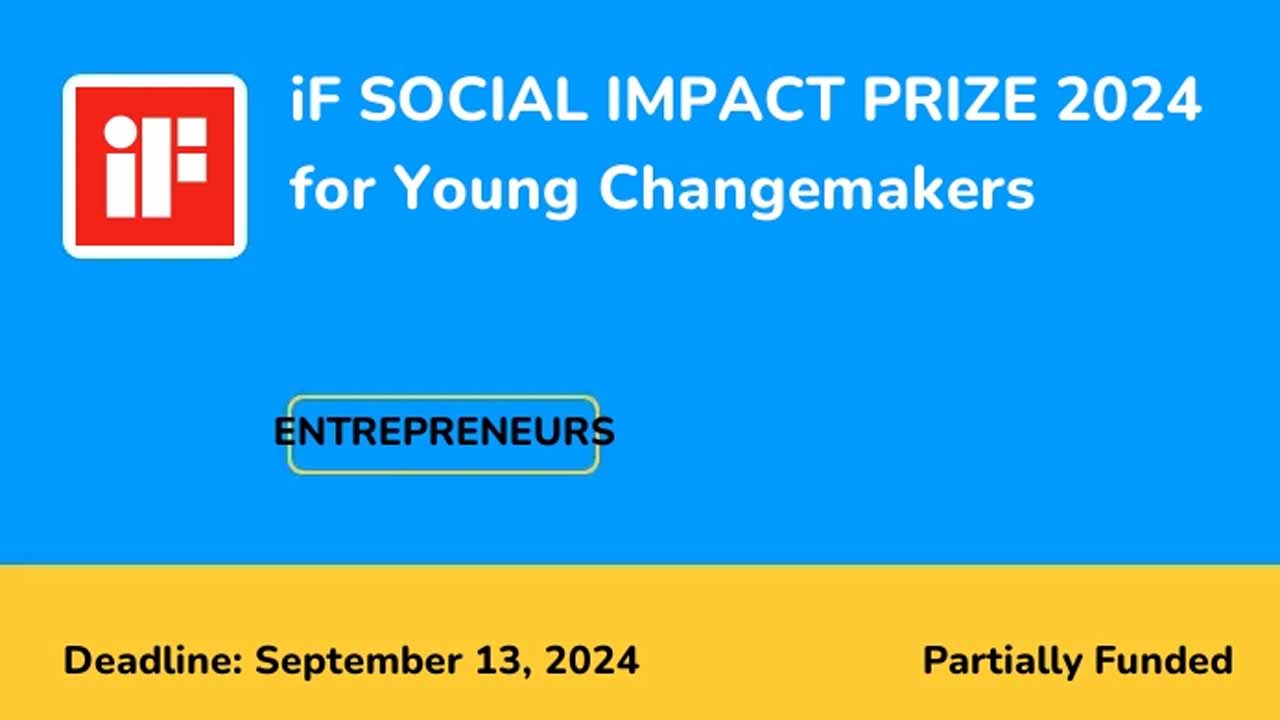Education
10 Effective Ways to Help Students Build Confidence

Confidence is a critical ingredient for student success, influencing not only academic performance but also overall well-being. When students believe in their abilities, they are more likely to take on challenges, persist through difficulties, and achieve their goals. As parents, teachers, and peers, we play a significant role in helping students build and maintain their confidence. Here are effective strategies to empower students and foster a sense of self-belief.
Building Self-Esteem in Students: A Guide for Success in School and Beyond

1. Create a Supportive Environment
- Why It Matters: A nurturing environment can significantly impact a student’s confidence. When students feel supported, they are more likely to take risks and try new things.
How to Implement:
- Teachers: Establish a classroom culture that values respect, encouragement, and inclusivity. Celebrate diversity and ensure every student feels seen and heard.
- Parents: Create a safe space at home where your child feels comfortable expressing themselves. Show interest in their activities and listen without judgment.
- Peers: Be supportive and inclusive. Encourage each other and celebrate successes, no matter how small.
2. Set Realistic Goals
- Why It Matters: Achievable goals provide students with a clear direction and a sense of accomplishment, boosting their confidence as they make progress.
How to Implement:
- Teachers: Help students set SMART (Specific, Measurable, Achievable, Relevant, Time-bound) goals. Break larger tasks into smaller, manageable steps.
- Parents: Work with your child to set realistic goals for their academic and personal life. Celebrate milestones along the way.
- Peers: Encourage each other to set and pursue individual goals. Hold each other accountable and offer support throughout the process.
3. Encourage Positive Self-Talk
- Why It Matters: Positive self-talk helps combat negative thoughts and build a more resilient mindset.
How to Implement:
- Teachers: Teach students about the power of positive affirmations and encourage them to replace negative thoughts with positive ones.
- Parents: Model positive self-talk in your own life. Encourage your child to speak kindly to themselves and remind them of their strengths.
- Peers: Reinforce each other’s positive qualities. When a friend speaks negatively about themselves, counter it with positive affirmations.
4. Provide Constructive Feedback
- Why It Matters: Constructive feedback helps students understand their strengths and areas for improvement without damaging their self-esteem.
How to Implement:
- Teachers: Offer specific, actionable feedback that highlights both what the student did well and where they can improve. Avoid general criticisms.
- Parents: Provide feedback that focuses on effort and improvement rather than just the outcome. Praise the process and progress made.
- Peers: When giving feedback, be honest but gentle. Focus on the effort and suggest ways to improve while highlighting what was done well.
5. Encourage Independence and Responsibility
- Why It Matters: Allowing students to take charge of their learning and responsibilities fosters a sense of ownership and boosts confidence.
How to Implement:
- Teachers: Provide opportunities for students to make choices about their learning. Encourage them to take on leadership roles in group projects.
- Parents: Give your child age-appropriate responsibilities at home. Trust them to make decisions and learn from their mistakes.
- Peers: Support each other in taking on new challenges and responsibilities. Celebrate each other’s achievements and growth.
6. Celebrate Achievements
- Why It Matters: Recognizing and celebrating achievements reinforces positive behavior and boosts self-esteem.
How to Implement:
- Teachers: Celebrate both big and small achievements in the classroom. Use praise, awards, and public recognition to highlight student success.
- Parents: Celebrate your child’s accomplishments at home. Create traditions or rituals to mark their successes.
- Peers: Recognize and celebrate each other’s achievements. Be each other’s cheerleaders and support systems.
7. Promote a Growth Mindset
- Why It Matters: A growth mindset helps students view challenges as opportunities to learn and grow rather than as threats to their self-esteem.
How to Implement:
- Teachers: Teach students about the difference between a fixed and a growth mindset. Encourage them to embrace challenges and learn from failures.
- Parents: Reinforce the idea that abilities can be developed through hard work and perseverance. Encourage your child to view setbacks as learning experiences.
- Peers: Support each other in adopting a growth mindset. Remind each other that effort and persistence are key to success.
8. Foster Strong Relationships
- Why It Matters: Positive relationships provide emotional support and contribute to a sense of belonging, which is crucial for confidence.
How to Implement:
- Teachers: Build strong relationships with your students by showing genuine interest in their lives and providing consistent support.
- Parents: Maintain open communication with your child. Show empathy and understanding in your interactions.
- Peers: Build strong friendships based on trust, respect, and mutual support. Be there for each other during both good times and bad.
9. Encourage Extracurricular Activities
- Why It Matters: Extracurricular activities provide opportunities for students to explore their interests, develop new skills, and build confidence.
How to Implement:
- Teachers: Encourage students to participate in clubs, sports, and other extracurricular activities. Highlight the benefits of these experiences.
- Parents: Support your child’s involvement in activities they are passionate about. Provide transportation and attend their events when possible.
- Peers: Join clubs or teams together. Encourage each other to try new activities and support one another in these endeavors.
10. Model Confidence
- Why It Matters: Students often emulate the behavior of those around them. Modeling confidence can inspire them to develop their own.
How to Implement:
- Teachers: Demonstrate confidence in your teaching and interactions. Share your own experiences of overcoming challenges.
- Parents: Show confidence in your daily life. Share stories of your struggles and how you overcame them.
- Peers: Be a role model for your friends. Display confidence in your abilities and encourage them to do the same.
Conclusion
Building confidence in students is a collaborative effort that involves teachers, parents, and peers. By creating a supportive environment, setting realistic goals, encouraging positive self-talk, and providing constructive feedback, we can help students develop a strong sense of self-belief. With the right strategies and support, students can learn to trust in their abilities, embrace challenges, and achieve their full potential.
Scholarships
Worldwide University of Edinburgh Data Analytics Scholarship for Students 2024

The University of Edinburgh Business School is offering a range of scholarships for students pursuing the Master of Science in Data and Decision Analytics (Online) program in 2024. These scholarships are designed to support students from all nationalities and backgrounds, providing financial assistance to help them achieve their academic goals.
Scholarship Details
The University of Edinburgh Business School Data Analytics (Online) Scholarship Programme offers the following benefits:
- Scholarship Value: Awards of £5,000
- Nationality: Open to students from all countries
- Deadline: 01 July 2024
Eligibility Criteria
To be eligible for the University of Edinburgh Business School Data Analytics (Online) Scholarship Programme, applicants must meet the following criteria:
- Programme: Must be commencing study in September 2024 on the Master of Science in Data and Decision Analytics (Online) program.
- Academic Standing: Hold a minimum qualification of above-average academic achievement, typically 65% or above overall at the Masters level, with a distinction-level dissertation, or the overseas equivalent.
- English Competency: Must meet the English requirements for the PhD programme. The most commonly approved certificate is an IELTS, for which the minimum accepted score is 7.0 overall with at least 6.0 in each section.
Application Process
The application process for the University of Edinburgh Business School Data Analytics (Online) Scholarship Programme involves the following steps:
- Apply for Admission: Students must first apply for admission to the Master of Science in Data and Decision Analytics (Online) program at the University of Edinburgh Business School.
- Submit Scholarship Application: Eligible candidates should then submit the scholarship application through the university’s official portal.
- Evaluation and Selection: Applications are evaluated and selected by a panel of senior academic colleagues within the Business School.
Additional Funding Opportunities
The University of Edinburgh offers several other funding opportunities for students, including:
- Edinburgh Global Online Learning Masters Scholarships: Twelve scholarships covering full tuition fees for eligible part-time distance learning Masters programs.
- UK Government Postgraduate Loans: Available to UK residents for part-time or full-time postgraduate study.
- Other External Funding: Students can search for scholarships and funding opportunities on the University of Edinburgh website.
About the University of Edinburgh
The University of Edinburgh is a world-leading institution, ranked 22nd in the world in the QS 2024 rankings. The University of Edinburgh Business School is accredited by the Association to Advance Collegiate Schools of Business (AACSB), EFMD Quality Improvement System (EQUIS), and Association of MBAs (AMBA), highlighting its commitment to excellence in teaching and research.
For more information about the University of Edinburgh Business School Data Analytics (Online) Scholarship Programme and to apply, please visit the university’s website or contact the Business School directly.
Application Deadline: July 1, 2024.
For More Information,
Visit the Official Website
Scholarships
2024 Swansea University International Postgraduate Research Excellence Scholarships

Swansea University, a leading research institution in the UK, is offering the prestigious International Postgraduate Research Excellence Scholarships for the 2024 academic year. These highly competitive scholarships are designed to support exceptional international students pursuing postgraduate research degrees at the university.
Scholarship Benefits
The International Postgraduate Research Excellence Scholarships provide comprehensive financial support to recipients, including:
- A full tuition fee waiver for the duration of the research degree program
- A generous living allowance of £15,285 per year (2023/24 rate)
- Access to a world-class research environment and facilities
The scholarships are available for both Master’s by Research and Doctoral (PhD) programs at Swansea University.
Eligibility Criteria
To be eligible for the International Postgraduate Research Excellence Scholarships, applicants must meet the following criteria:
- Be an international student (non-UK/Republic of Ireland)
- Hold a relevant undergraduate degree with a minimum of a 2:1 classification or equivalent
- Meet the English language proficiency requirements for their chosen program
- Have applied for and met the entry requirements for a Master’s of Research or a Doctoral degree at Swansea University
Application Process
The application process for the International Postgraduate Research Excellence Scholarships involves the following steps:
- Apply for admission to a postgraduate research degree program at Swansea University.
- Submit the scholarship application through the university’s official portal, including a research proposal and supporting documents.
- Successful applicants will be notified of their scholarship award.
The application deadline for the 2024 scholarships is typically in early 2024. Interested students are encouraged to check the university’s website for the most up-to-date information on the application process and deadlines.
About Swansea University
Swansea University is a research-led institution known for its excellence in various fields, including engineering, science, and medicine. The university is ranked among the top 30 in the UK for research quality and impact, according to the Research Excellence Framework (REF) 2021.
International students at Swansea University benefit from a supportive learning environment, access to cutting-edge facilities, and opportunities for personal and professional growth. The university’s commitment to research and innovation makes it an ideal destination for aspiring postgraduate researchers.
For more information about the 2024 Swansea University International Postgraduate Research Excellence Scholarships and to apply, please visit the university’s website or contact the International Office.
Scholarships
iF Social Impact Prize 2024 (EUR 100,000)

The iF Social Impact Prize 2024, an initiative by the prestigious iF International Forum Design GmbH, is offering a total prize of €100,000 to support projects that contribute to solving urgent challenges and improving living conditions around the world. This international competition is open to companies, NGOs, foundations, design studios, social enterprises, and entrepreneurs who are working towards achieving the United Nations Sustainable Development Goals (SDGs).
Eligibility and Categories
To be eligible for the iF Social Impact Prize 2024, projects must:
- Already be established and implemented
- Contribute to solving well-known issues in any category of the UN SDGs 1-15
- Be submitted by companies, NGOs, foundations, design studios, social enterprises, or entrepreneurs (student concepts are not accepted)
Applicants can submit solutions related to the following SDG categories:
- No Poverty
- Zero Hunger
- Good Health and Well-being
- Quality Education
- Gender Equality
- Clean Water and Sanitation
- Affordable and Clean Energy
- Decent Work and Economic Growth
- Industry, Innovation, and Infrastructure
- Reduced Inequalities
- Sustainable Cities and Communities
- Responsible Consumption and Production
- Climate Action
- Life Below Water
- Life on Land
Benefits for Winners
The winning projects of the iF Social Impact Prize 2024 will receive:
- A share of the €100,000 prize money
- Publication on the iF Design Website for an unlimited period
- Introduction to a global design community, media, and the design-interested public
- Individual Winner Certificates
- Jury feedback and the opportunity to update their projects with the latest videos, photos, or news
Application Process and Deadlines
The application process for the iF Social Impact Prize 2024 involves creating an iF account, filling out the submission form, uploading photos, and providing a short project description. The submission deadline for the second round is September 13, 2024.
Evaluation Criteria
The international jury of experts from the social sector will evaluate and select the winning projects based on the following criteria:
- Problem-solving
- Beneficial experience
- Reasonable effort
- Moral and ethical standards
- Solidarity
Conclusion
The iF Social Impact Prize 2024 is a unique opportunity for organizations and individuals working towards positive social change to showcase their projects, compete for a substantial cash prize, and gain international recognition. By supporting projects aligned with the UN SDGs, the iF Social Impact Prize aims to empower those who make a difference and contribute to improving our society.
For more information and to apply, visit the iF Design Award website at ifdesign.com.
Method of Application
Visit The Official Website to Apply
Application Deadline: September 13, 2024.
For More Information,
Visit the Official Website
-

 News8 months ago
News8 months ago6 Ways To Attract a Rich Girl of Your Dream
-

 Finance7 months ago
Finance7 months agoWhich credit card is best for small businesses?
-

 Finance7 months ago
Finance7 months agoBest Business Credit Cards With 0% APR – February 2024
-

 Finance7 months ago
Finance7 months agoHow To Apply For A Chase Business Credit Card
-

 Finance8 months ago
Finance8 months agoLowe’s Credit Card: New Discounts on Lowe’s Purchases
-

 Finance7 months ago
Finance7 months agoLimited Time: Sign up for Chase Freedom Unlimited for a Year of Unlimited Cash Back!
-

 Entertainment8 months ago
Entertainment8 months agoNetflix Schedule January 2024
-

 Tech8 months ago
Tech8 months agoApple Vision Pro: $3,499 headset finally has a release date








